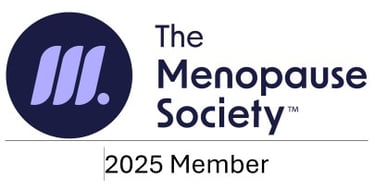The Importance of Protein Intake for Muscle Mass: Meatless Options to Consider
NUTRITIONGLP-1


Meatless Protein Food Options
When it comes to maintaining and enhancing muscle mass, adequate protein intake is crucial. This becomes even more important for individuals who are taking prescription weight loss medications, such as GLP-1's like semaglutide and tirzepatide. While protein is usually associated with meat, there are also excellent meatless options available that can help meet your protein needs. In this article, we will explore five meatless options that are rich in protein.
1. Eggs
Eggs are a versatile and nutrient-rich source of protein. They are not only packed with essential amino acids but also contain other important nutrients like vitamins and minerals. One large egg contains around 6 grams of protein, making it an excellent choice for those looking to increase their protein intake. Keep in mind that if you have diabetes or heart disease you should likely limit to no more than three eggs weekly.
2. Yogurt
Yogurt is another meatless option that is high in protein. Greek yogurt, in particular, is known for its rich protein content. It contains approximately 17 grams of protein per 6-ounce serving. Yogurt is also a good source of calcium, which is essential for maintaining strong bones. To add more protein to your diet, consider incorporating yogurt into your breakfast or enjoying it as a snack.
3. Soy
Soy products, such as tofu and tempeh, are excellent sources of plant-based protein. Tofu, made from soybeans, is a versatile ingredient that can be used in a variety of dishes. It contains about 10 grams of protein per 3-ounce serving. Tempeh, another soy-based product, offers even higher protein content, with approximately 15 grams per 3-ounce serving. Incorporating soy into your diet can provide you with the necessary protein while also offering other health benefits, such as reducing the risk of heart disease.
4. Tree Nuts
Tree nuts are another great option with high protein content and can be a valuable addition to a healthy diet. Tree nuts, such as almonds, walnuts, and cashews, contain essential nutrients like vitamin E and selenium, which have been linked to reducing the risk of certain cancers. They also assist in lowering LDL cholesterol levels. However, it's important to consume them in moderation due to their calorie density. A handful of tree nuts can provide a satisfying snack while contributing to your protein intake.
5. Legumes
Legumes, including beans, lentils, and chickpeas, are excellent sources of plant-based protein. They are also rich in fiber, vitamins, and minerals. For example, one cup of cooked lentils contains approximately 18 grams of protein. Incorporating legumes into your meals can not only boost your protein intake but also provide other health benefits, such as improving digestion and promoting heart health.
When aiming to increase your protein intake t's important to consider the variety of protein sources available to ensure you meet your nutritional needs. By incorporating these five meatless options into your diet, you can maintain and enhance your muscle mass while enjoying a diverse range of delicious and nutritious foods.


